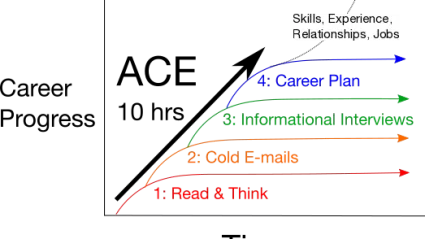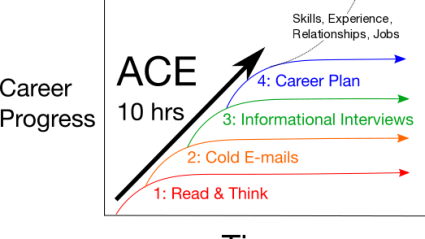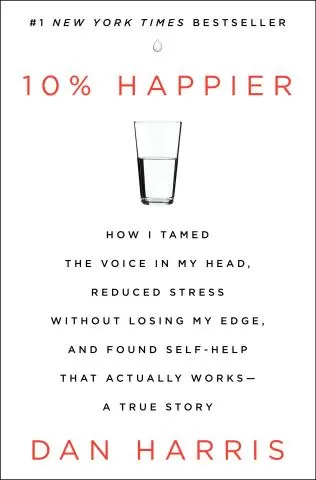Searching job boards is a big part of looking for a new job. However, fraudulent employers can get through and post even on trusted websites. It is up to you to do your due diligence and make sure you don’t become the victim of a fraudulent job posting. This can be hard because often fake employers are very savvy in how they market themselves. It is also difficult to know what is real and what is fake if you aren’t familiar with common customs and practices within the United States.
Scammers are always reinventing ways to run their con, so this list is by no means extensive. Try to use your best judgement; however, if you aren’t sure, don’t hesitate to ask others (including OITE) their opinion on the legitimacy of a job ad.
In general, here are some red flags to you as a job seeker:
1. The posting contains many spelling and grammatical errors as well as odd spacing.
2. It seems too good to be true! A high salary is being offered for a minimal skill set job. If it seems to good to be true, it most likely is.
3. You are asked to provide a credit card, bank account, PayPal, or other personal financial information. NEVER provide this! Legitimate jobs will not ask for this kind of information. Likewise, you should be very cautious if the company or a recruiter asks for any kind of initial investment from you. That is not usually how the process works, so proceed with caution.
4. The listed website doesn’t work or if you are redirected to another website, then that should give you pause.
5. The position states that you will be working from home and will need access to personal resources like a computer or car. Granted a lot of positions do work from home, so this in and of itself is not a deal breaker; however, if you see this in conjunction with other things that are amiss, then take heed.
6. Very little is mentioned about the actual job, responsibilities, work location, etc. The majority of the posting focuses on the money that will be made.
7. You are asked to provide a photo of yourself or other personally identifying information.
8. The employer responds to you immediately after you submit your application (not an auto-response). Most legitimate employers take thoughtful time to go through candidates, so it is a huge red flag if that doesn’t happen.
9. A startup tells you there is not office in your geographic location and they want you to help them get a new office up and running. This can be an exciting opportunity or a scam. If they ask you for banking information to help make “employer transactions” then stop communicating with them.
10. It is difficult to find an address, company name, and actual contact information online. In today’s world, this should be at your fingertips. If it is not, then that is a problem.
Do some research to see if you are being scammed.
Job Scam Video and Information from the Federal Trade Commission
http://ftc.gov/jobscams Job
Scams List: A-Z List of the Most Common Job Scams http://jobsearch.about.com/od/jobsearchscams/a/job-scams-list.htm
Ripoff Report
www.ripoffreport.com
If you have been scammed…
If you have sent money to a fraudulent employer, then you should contact your bank and/or credit card company immediately. You should also contact the police. If the incident occurred completely over the internet, then you should file a report with the United State Department of Justice (www.cybercrime.gov) and the Federal Trade Commission (http://www.ftc.gov).
If you find a suspicious posting on the OITE Career Services site, please alert us immediately.
*List adapted from Georgia State University Career Services and Rutgers Undergraduate Academic Affair

 Chen created a guide to help you within your ACE Plan entitled “Cold E-mails and Hot Coffee” which can be downloaded for free. One of authors’ guiding principles was to create limits on how much time a person could spend in one section since it can be so easy to get stuck in an area which feels the most comfortable to you.
Many trainees at the NIH are well-versed on the first step: reading and reflecting. Many times this equates to trying to do their own research on a career field through articles and books; however, they then have a hard time making that leap into the second and third stages - the more active phases – which include sending cold emails and meeting people for informational interviews. The read and reflect phase spans into months instead of a mere two hours.
Why do people get stuck making the leap to the second and third phases within the ACE Plan?
Well, often because sending cold emails to people you don’t know feels awkward and you worry it won’t be well-received. Chen and colleagues understand these challenges, so they devoted a whole article on how you can do this part well. It is extremely important to normalize this networking process because it is so key to your career development. Often the worst that happens is you just don’t hear back.
If you have attended any of our workshops at the OITE, then the ACE Plan will sound very familiar to you. It is a new spin on common recommendations, but perhaps the time-limited approach will resonate with you.
Give it a try and let us know how the 10 hour ACE plan worked for you!
Chen created a guide to help you within your ACE Plan entitled “Cold E-mails and Hot Coffee” which can be downloaded for free. One of authors’ guiding principles was to create limits on how much time a person could spend in one section since it can be so easy to get stuck in an area which feels the most comfortable to you.
Many trainees at the NIH are well-versed on the first step: reading and reflecting. Many times this equates to trying to do their own research on a career field through articles and books; however, they then have a hard time making that leap into the second and third stages - the more active phases – which include sending cold emails and meeting people for informational interviews. The read and reflect phase spans into months instead of a mere two hours.
Why do people get stuck making the leap to the second and third phases within the ACE Plan?
Well, often because sending cold emails to people you don’t know feels awkward and you worry it won’t be well-received. Chen and colleagues understand these challenges, so they devoted a whole article on how you can do this part well. It is extremely important to normalize this networking process because it is so key to your career development. Often the worst that happens is you just don’t hear back.
If you have attended any of our workshops at the OITE, then the ACE Plan will sound very familiar to you. It is a new spin on common recommendations, but perhaps the time-limited approach will resonate with you.
Give it a try and let us know how the 10 hour ACE plan worked for you!


